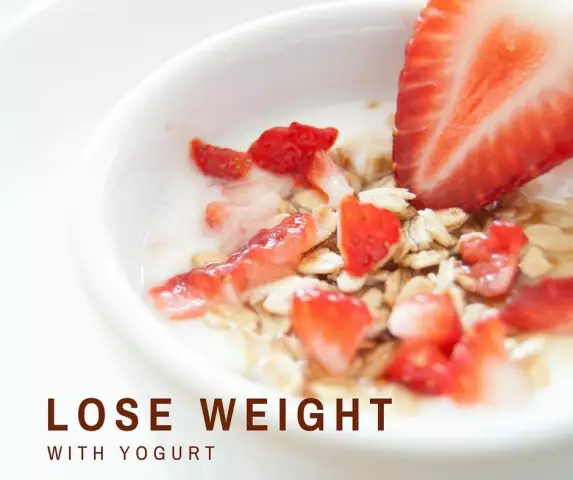- Author Rachel Wainwright wainwright@abchealthonline.com.
- Public 2023-12-15 07:39.
- Last modified 2025-11-02 20:14.
Calorie content of kvass
A unique, primordially Russian drink - kvass, has come down to our times from Kievan Rus. Its original recipe implied the presence of up to 12% alcohol in the drink. In a modern drink, this figure does not exceed 1.2%, and the calorie content of kvass is rather low.
How many calories in kvass

On average, the calorie content of kvass is about 20 kcal per 100 g of drink. The indicated dose of the product contains 0.2 g of proteins, 5 g of carbohydrates and does not contain fats. At the same time, the glycemic index of 100 g of kvass is 30, which means that the drink is largely able to stimulate appetite and lead to significant fluctuations in blood sugar and insulin levels, that is, to increase body weight.
Natural, low-calorie kvass is obtained by natural fermentation. Under industrial conditions, wort is boiled from rye flour and malt, then ferment from lactic acid bacteria and yeast, sugar and water are added. At the same time, the malt itself is made from sprouted grains of wheat, barley or buckwheat.
In the resulting mixture, fermentation begins, while the yeast forms alcohol, and the drink acquires a characteristic taste. The calorie content of kvass is due to the presence of sugar in its composition.
Kvass wort is a concentrate of vitamins B and PP. They are the direct participants in the transmission of nerve impulses and the formation of nerve fibers, contribute to the normalization of the emotional background, improve the appearance of hair, nails and skin, and eliminate dandruff. In addition to calories, kvass also contains youthful vitamin E, which is also necessary for the normal functioning of the cardiovascular system.
Besides, wort contains many elements such as potassium, phosphorus and iron. Organic acids of kvass have a cleansing effect on the intestines. By the number of fermentation bacteria, kvass competes with kefir; it improves metabolism and stimulates immunity. At the same time, the drink partially loses its valuable qualities when sugar is added, especially in large doses.
Often, store kvass contains stabilizers, dyes, preservatives and flavor enhancers, and the calorie content of industrially produced kvass is much higher. The use of such a drink, as well as carbonated kvass, should be discarded. Also, when buying kvass, you need to check the amount of alcohol in its composition.
High-quality natural kvass is stored in the refrigerator for no more than three days. If you keep such a drink in a warm place, the fermentation processes will continue, which means that the percentage of alcohol in it and the calorie content of kvass will increase.
It is quite simple to prepare high-quality natural, low-calorie kvass at home. Half a loaf of rye bread is crushed, dried, put into a three-liter jar and poured with hot boiled water. Then add two tablespoons of sugar and 50 g of dry yeast. The resulting starter culture is covered with gauze and placed in a warm place for two days.
After this time, the kvass is filtered, if desired, more sugar is added to taste (remembering that the less sweet the kvass, the more useful it is) and put into the refrigerator. The calorie content of homemade kvass also does not exceed 20 kcal per 100 g of the drink. When calculating how many calories there are in industrially produced kvass, it should be borne in mind that there are about one and a half times more of them.
A sufficient level of calorie content of kvass also does not allow it to be used to quench thirst - for this you should use pure non-carbonated water. Kvass, on the other hand, should be considered as a delicacy and should not be abused, and due to the presence of alcohol in its composition, one should not offer kvass to young children, so as not to form a harmful addiction in them from childhood. Being a fermentation product, kvass can cause discomfort - heartburn and reflux - in people with digestive system diseases, and also cause flatulence.
Calorie content of kvass for weight loss
Another property of kvass is its diuretic effect. Moreover, it is achieved by removing excess fluid, therefore it has a stimulating effect on metabolism. As a result, fats are broken down faster, and body weight, taking into account the low calorie content of homemade kvass, is normalized.
Kvass for weight loss is prepared not only from bread, but also from beets, honey and even pharmaceutical herbs. In particular, raw beets contain active antioxidants, and also removes excess "bad" cholesterol. Preparing kvass for weight loss is not the slightest difficulty.
4-5 medium-sized ripe beets are cut into slices, put in a three-liter jar and filled with chilled boiled water. To give the drink a fresh and soothing effect, you can dip a few leaves of fresh mint into the resulting starter culture. The jar is sealed and placed in a warm place for four days. After this time, the kvass is filtered, honey is added to taste and placed in the refrigerator: the drink is ready to drink. The remaining beets can be poured 2-3 more times to get new portions of kvass. The calorie content of beet kvass is approximately 25 kcal per 100 g of drink.

A mixture of beet and bread kvass also gives a good slimming effect, and it can be obtained both by combining two types of kvass, and using beet-bread sourdough.
Particularly famous and popular was the recipe for kvass for weight loss based on celandine, the authorship of which is attributed to academician Bolotov. To prepare it, you need 0.5 liters of milk whey and a glass of sugar. A glass of crushed celandine herb is poured into a three-liter jar, poured with whey and sugar and up to three liters is added with chilled boiled water.
It takes ten days to prepare kvass for weight loss. It is consumed on an empty stomach for a month or taken on specially designated fasting days. The calorie content of herbal kvass is approximately 23 kcal per 100 g of drink. It is believed that only with its help in one month you can say goodbye to two kilograms of excess weight. If you accompany the process of losing weight with regular physical activity and proper nutrition, the result will be even more impressive.
Beet kvass has a number of contraindications. It should not be used by people with diseases of the urinary system. Everyone else should also consult a doctor before using such a drink for weight loss.
Found a mistake in the text? Select it and press Ctrl + Enter.






